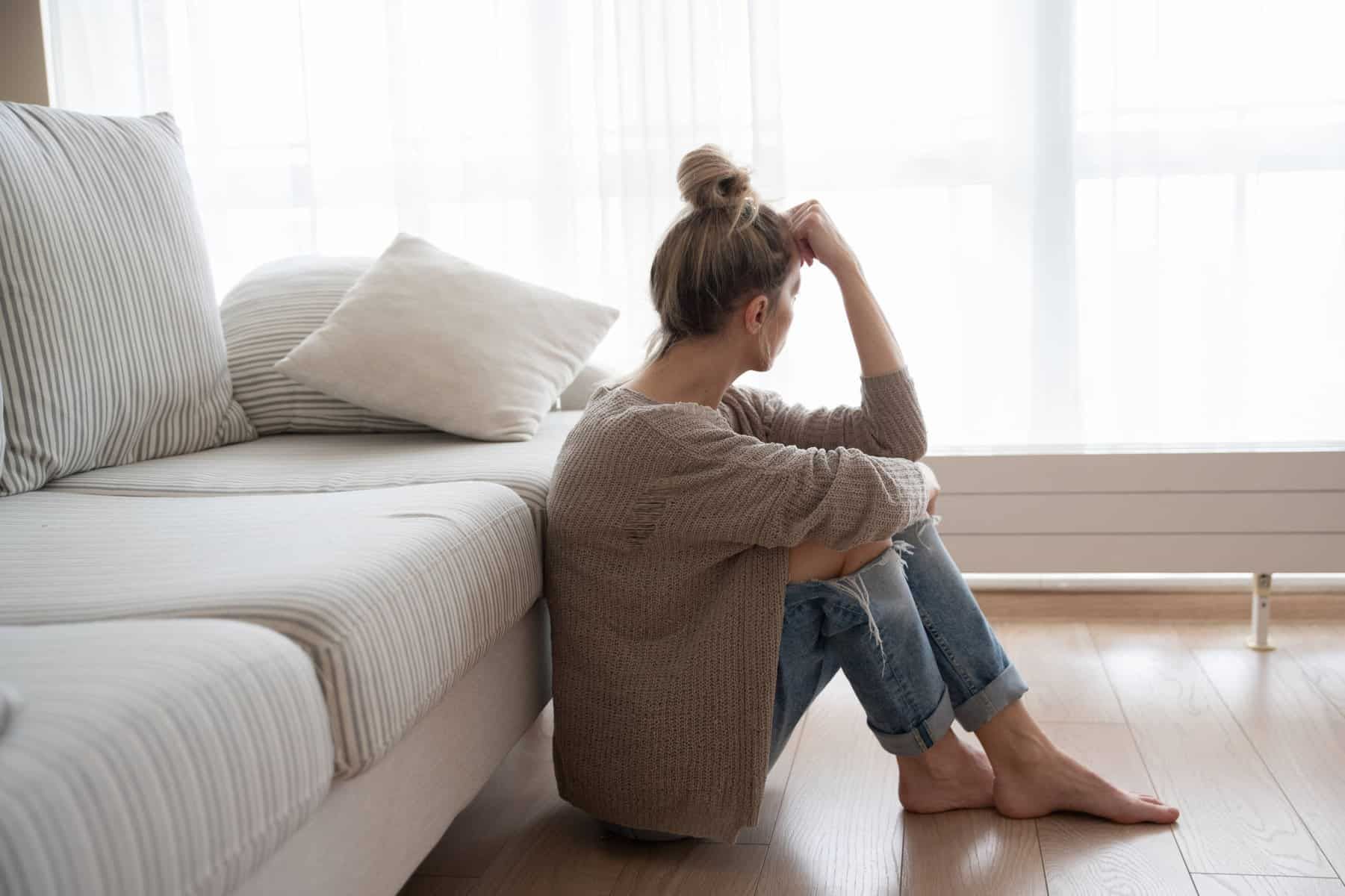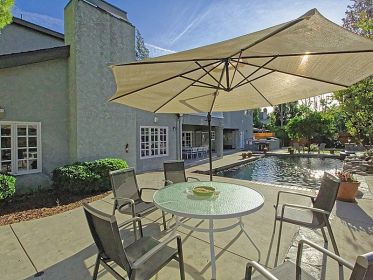Bipolar Disorder
An Overview of Bipolar Disorder And Available Treatment Options
Over 92% of adults with bipolar disorder are misdiagnosed. This inevitably makes receiving the right treatment to treat your bipolar disorder difficult. That’s why understanding the common signs associated with bipolar disorder can help you better understand if you may be struggling with bipolar disorder and if you may benefit from a bipolar treatment center in Los Angeles.
Many people who have bipolar disorder may also struggle with addiction. Therefore, seeking a Los Angeles bipolar rehab center that treats both addiction and mental illness is critical. At Harmony Place, we offer dual diagnosis treatment in Los Angeles, California, so you can simultaneously work to treat both your addiction and mental illness.
Harmony Place offers premier addiction treatment in Los Angeles, California for anyone, whether you are struggling with addiction or are looking for a dual-diagnosis bipolar treatment center. If you or someone you know is struggling with addiction and in need of treatment, contact us today or call 855-652-9048 to learn more about how we can help you break free of addiction and better manage your bipolar symptoms.

What is Bipolar Disorder?
Bipolar disorder is a mental illness that causes unusual shifts in mood, energy, concentration, and more that interfere with an individual’s ability to complete normal daily tasks.
Bipolar can be tricky to diagnose because:
- bipolar disorder symptoms resemble other common mental health conditions
- there are different types of bipolar disorder.
There are three types of bipolar: Bipolar I disorder, Bipolar II disorder, and cyclothymic disorder.
Bipolar I Disorder: An individual diagnosed with bipolar I disorder may experience manic episodes that last at least a week or experience severe manic symptoms that warrant the person needing to seek medical attention to help their symptoms. Depressive episodes lasting at least two weeks or longer will also occur.
Bipolar II Disorder: An individual diagnosed with bipolar II disorder will experience both depressive and hypomanic episodes similar to that of an individual with bipolar I disorder. However, the individual’s manic episodes will be less severe.
Cyclothymic Disorder: An individual diagnosed with cyclothymic disorder will experience hypomanic and depressive symptoms like the above two types; however, these symptoms will not last long enough to be considered complete manic or depressive episodes.
Call Us 24/7: (855) 652-9048
What Are the Signs of Bipolar Disorder?
Bipolar disorder can be challenging to diagnose because its signs and symptoms resemble several other mental health conditions like depression and borderline personality disorder.
However, there are key signs of both manic and depressive episodes to look out for, which can further bring to light whether you may be struggling with bipolar disorder.
Common mania and hypomania episode signs include:
- Feeling usually wired, upbeat, or alert
- Increased energy levels
- An exaggerated sense of self-confidence
- Talking more than usual
- Racing thoughts
- Easily distracted and agitated
- Participating in riskier situations/ making poor decisions (i.e., shopping sprees)
It’s important to understand that both mania and hypomania are different types of episodes of bipolar disorder; however, both have the same symptoms. Mania symptoms are more severe than hypomania symptoms and can sometimes be so intense that they require the individual to seek hospitalization.
Meanwhile, the other side of bipolar disorder is the major depressive episodes an individual experiences. Major depressive episodes can get so severe that they can significantly impact an individual’s ability to do normal daily tasks and functions like going to work or school.
Common major depressive episode signs include:
- Depressed mood (i.e., feeling hopeless, sad, empty)
- No longer finding joy and pleasure in activities that you used to enjoy
- Noticeable changes in weight (weight loss or weight gain) accompanied by changes in appetite (increased or decreased appetite)
- Irregular or poor sleep quality (insomnia or sleeping too much)
- Lack of energy or always feeling exhausted
- Inability to concentrate and make decisions promptly
- Thinking, planning, or attempting suicide
Can Bipolar Disorder Cause Substance Abuse?
Many people who struggle with addiction often may also struggle with a co-existing mental health condition like bipolar disorder. If you struggle with both mental illness and substance abuse, each condition only exacerbates the other such that you cannot effectively heal and treat one condition without also treating the other condition at the same time.
Because bipolar disorder does involve manic episodes that negatively impact your decision-making, this can put you at a higher risk for experimenting and trying different drugs, which in many cases can lead to drug dependency. Unfortunately, drugs and alcohol worsen bipolar disorder symptoms by intensifying manic and depressive episodes.
How to Treat Bipolar Disorder?
If you struggle with bipolar disorder and addiction, it’s important to treat both conditions at the same time. Otherwise, treating one condition, but not the other can cause the treated condition to come back. For example, if you treat your addiction and quit using but don’t effectively treat your bipolar disorder, this can put you at a greater risk of relapsing.
The first step to treating bipolar disorder is getting a diagnosis. Again, bipolar disorder can often be mistaken for another mental health condition; therefore, an accurate diagnosis is essential so you can get the exact help you need to effectively treat your bipolar disorder. Once you’ve received a proper diagnosis, depending on the type of bipolar disorder you have and the severity of your symptoms can influence your specific treatment plan.
While bipolar disorder cannot be cured, treatment can help better manage your symptoms to lead a healthier, more balanced lifestyle. Common treatment approaches for bipolar disorder include:
Medications
Several medications can be used to treat bipolar disorder. Common medications include mood stabilizers, antipsychotics, antidepressants, and anti-anxiety medications.
Maintenance Treatment
Because bipolar disorder is a lifelong mental health condition, seeking continued/ maintenance treatment is essential to ensure the individual isn’t at an increased risk for relapsing their symptoms.
Day Treatment Programs
Depending on the severity of your symptoms, attending a day treatment program that offers therapy and support can help treat bipolar disorder.
Addiction Treatment
Often, if you struggle with bipolar disorder, you may also struggle with substance abuse. Therefore, seeking treatment for both treating your addiction and bipolar disorder is essential to lead a long-lasting life of sobriety.
Are There Dual Diagnosis Rehab Centers For Bipolar Disorder and Addiction?
Yes, dual diagnosis treatment centers exist to help addicts not only recover from substance abuse but also work to effectively treat their mental illness.
If you are an addict who has been diagnosed with bipolar disorder or suspect you may have bipolar disorder, receiving an accurate diagnosis and then seeking help from a dual diagnosis bipolar treatment center is important. The staff at the dual diagnosis bipolar treatment center will help guide you on your road to addiction recovery while also working to simultaneously treat and better manage your bipolar symptoms.
Harmony Place is a leading bipolar treatment center in Los Angeles where addicts can receive tailored treatment to begin their road to recovery.

Harmony Place Offers Dual Diagnosis Bipolar Treatment in Los Angeles
If you are an addict also struggling with bipolar disorder, seeking the right bipolar disorder treatment in LA can help you lead a healthy, long-lasting life of sobriety. At Harmony Place, we are a bipolar treatment center in Los Angeles where we also help addicts struggling with other common mental health conditions like anxiety, PTSD, OCD, and depression. Our LA bipolar rehab center provides comprehensive care and support essential to break free of addiction.
Contact us today or call 855-652-9048 to learn more about how you can start your addiction recovery journey.




